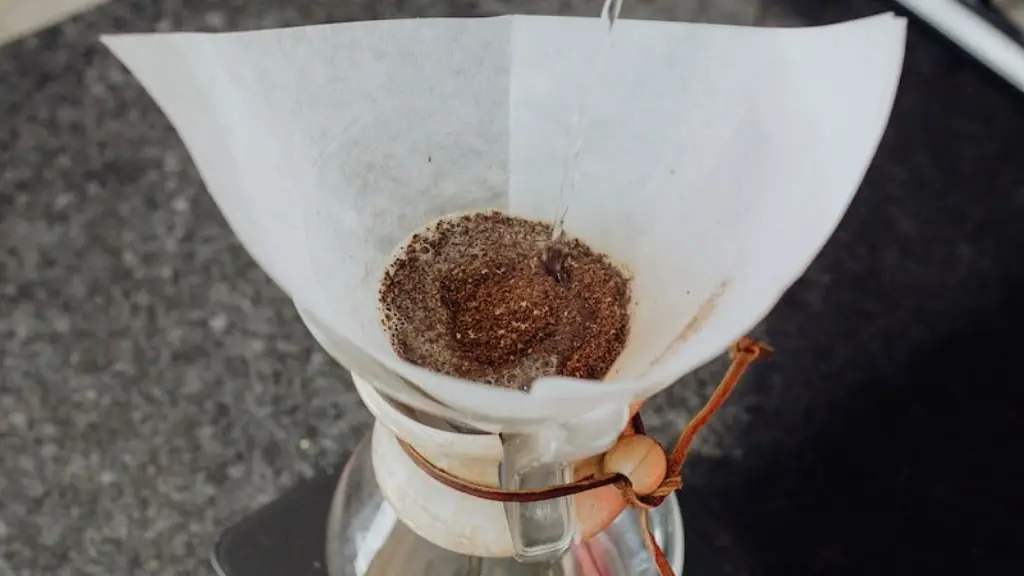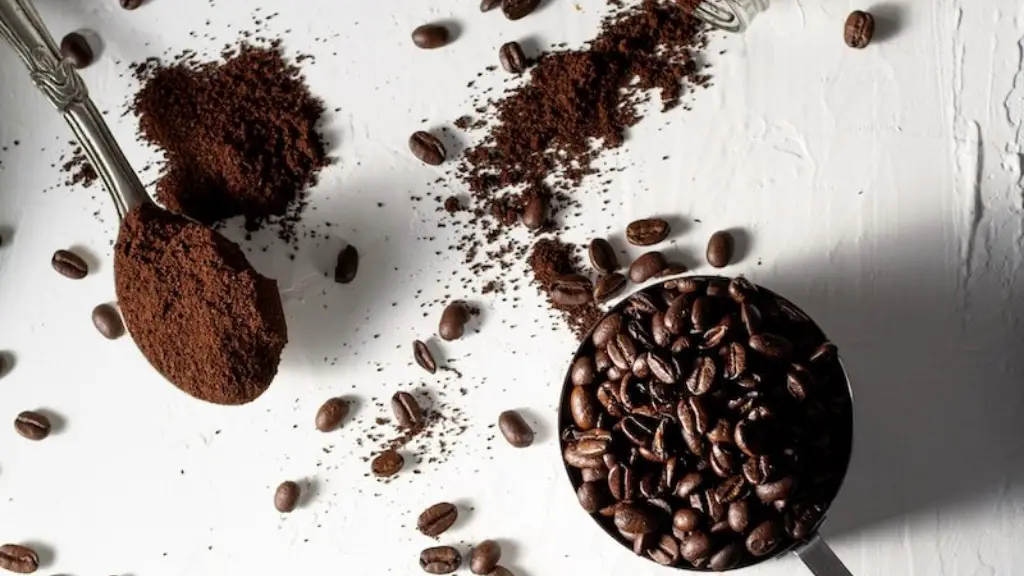Coffee is a stimulant, and while it can make us more alert, it can also cause us to feel anxious and edgy. Drinking coffee can also disrupt our sleep, and in turn lead to exhaustion and feeling fatigued. Luckily, it is possible to stop drinking coffee and still get the energy you need for the day. Here is how you can do it.
One way to kick the coffee habit is to set a limit for yourself as to how much coffee you can have in a day. Identifying how much caffeine you’re consuming is the first step. According to the American Psychiatric Association, caffeine is most beneficial when taken in moderation, which is 300 milligrams a day, or two to three 8-ounce cups. Track your caffeine intake by noting when, where, and how much coffee you drink each day. Keeping a journal can be beneficial in helping to identify patterns in your coffee consumption.
Another way to break the coffee habit is to slowly and gradually reduce your caffeine intake. Instead of drinking two mugs per day, for example, you can cut it down to one. Or if you know that you drink a lot of coffee with sugar, you could switch to a healthier sweetener such as honey or agave nectar. You can slowly reduce your intake further in a similar way, by reducing the amount and frequency of added sugars. This can help your body adjust to drinking less coffee while still getting the same flavor.
You can also switch your mindset when it comes to drinking less coffee. Make yourself aware of the risks and benefits associated with drinking coffee. Focus on the long-term health effects of too much caffeine and create a plan to break your coffee habit. For example; drink herbal tea instead of coffee or alternate between coffee and herbal tea. Acknowledge your triggers and learn to recognize them when they come up, so that you can avoid them.
If you want to quit coffee completely, it is important to replace coffee with healthier alternatives. Herbal teas, such as chamomile and mint, are good for calming and restorative properties, and can help you relax at night and reduce stress during the day. Smoothies and green juices can give you energy from nutrients and fiber, while green tea has calming properties and can energize you in a more balanced way.
Finally, it is important to be mindful of your lifestyle choices. Drink plenty of water, eat a balanced diet, and get enough sleep, as these are all vital for physical and emotional wellbeing. Take time to practice calming activities, such as yoga or meditation; make sure to get enough exercise and spend time outdoors to boost your energy levels naturally.
The Benefits of Quitting Coffee
Giving up coffee can bring with it a number of health benefits. Cutting down on caffeine can help reduce anxiety and depression, a benefit which is especially important if you experience these symptoms due to drinking too much coffee. It can also help you to sleep better, have more balanced energy levels, and even lose weight. But one of the biggest benefits of quitting coffee is that you can improve your overall health.
Studies have shown that drinking too much coffee has been linked to an increased risk of high blood pressure, heart disease, and even diabetes. By quitting coffee, you can avoid these risks, ensuring your long-term health and wellbeing. Quitting coffee can also help reduce stress and headaches, two of the most common side effects of drinking too much coffee.
Additionally, you can save money in the long run. Drinking coffee every day can add up, from the cost of buying coffee drinks to the money spent on coffee-making equipment. Quitting coffee has the potential to reduce your expenses, enabling you to use that money for more enjoyable and productive activities.
Of course, it is important to be realistic about your expectations. Quitting coffee may not be easy, and it may take time to adjust to drinking less coffee. But with the right strategies and a positive mindset, it is possible to cut down on coffee without feeling deprived.
Making the Swith to Different Beverages
While coffee is a popular, and even necessary, part of many people’s lives, it can become a distraction from focusing on important activities and from getting enough sleep. It can also affect your overall health in negative ways. Due to all of these reasons, it’s important to find alternative beverages to replace coffee.
Replacing coffee with healthier drinks is essential for maintaining energy throughout the day. Water is a great option, as it keeps us hydrated and helps us to stay alert and focused. Herbal teas and adaptogen-infused beverages are two other healthy choices for boosting energy and focus, without the crash that can come with coffee.
Smoothies and green juices are also tasty and nutritious options to consider. Fruits and vegetables are packed with nutrients and can help to energize us while improving overall health. Additionally, green tea has calming properties and provides a milder pick-me-up than coffee.
It’s also important to be mindful of the food you’re eating in order to maintain your energy. Make sure to include complex carbohydrates, proteins and healthy fats in your meals to provide your body with sustained energy. And if you’re looking for a quick snack, dark chocolate is a healthy option for a mid-day boost.
Checking in with Yourself
Quitting coffee is no easy feat, so it’s important to check in with yourself throughout the process. The first step to kicking the coffee habit is to identify why you want to quit and what your desired outcome is. Understanding your motivations can help to keep you on track and make your transition to a coffee-free lifestyle smoother.
It’s also important to focus on celebrating small victories. This can be anything from drinking your first cup of herbal tea to completely cutting out coffee. These little successes can be important for keeping you motivated and interested in your goal.
Finally, it’s important to be patient. The transition from drinking coffee to drinking other beverages takes time, and you may find that you still want a cup of coffee from time to time. Don’t be too hard on yourself; there will be days when you may struggle with it more than others.
Modify Your Habits and Routine
In order to quit coffee, it’s important to modify both your habits and your routine. It can be helpful to start the day with a different beverage, such as warm lemon water or herbal tea. This can help to set the tone for the day and serve as a reminder that you are in the process of quitting coffee.
You can also look to break the cycle of coffee addiction by setting a limit on how much coffee you can have in a day and tracking your intake. Keeping a journal of your coffee consumption can help you to identify patterns, and can be beneficial for identifying the situations which trigger your coffee cravings.
Additionally, getting enough sleep, eating a balanced diet, and doing calming activities can also help to reduce your need for coffee. Exercise is an effective way to boost natural energy and reduce stress, and giving yourself regular breaks throughout the day can help to keep you feeling energized and productive.
Finally, it can be helpful to replace coffee with energizing and healthy alternatives. Herbal teas and smoothies are great for energy and can be a healthier and more balanced option than coffee. Drinking plenty of water throughout the day is also important; it helps to keep us hydrated which can help us to feel more energized.





